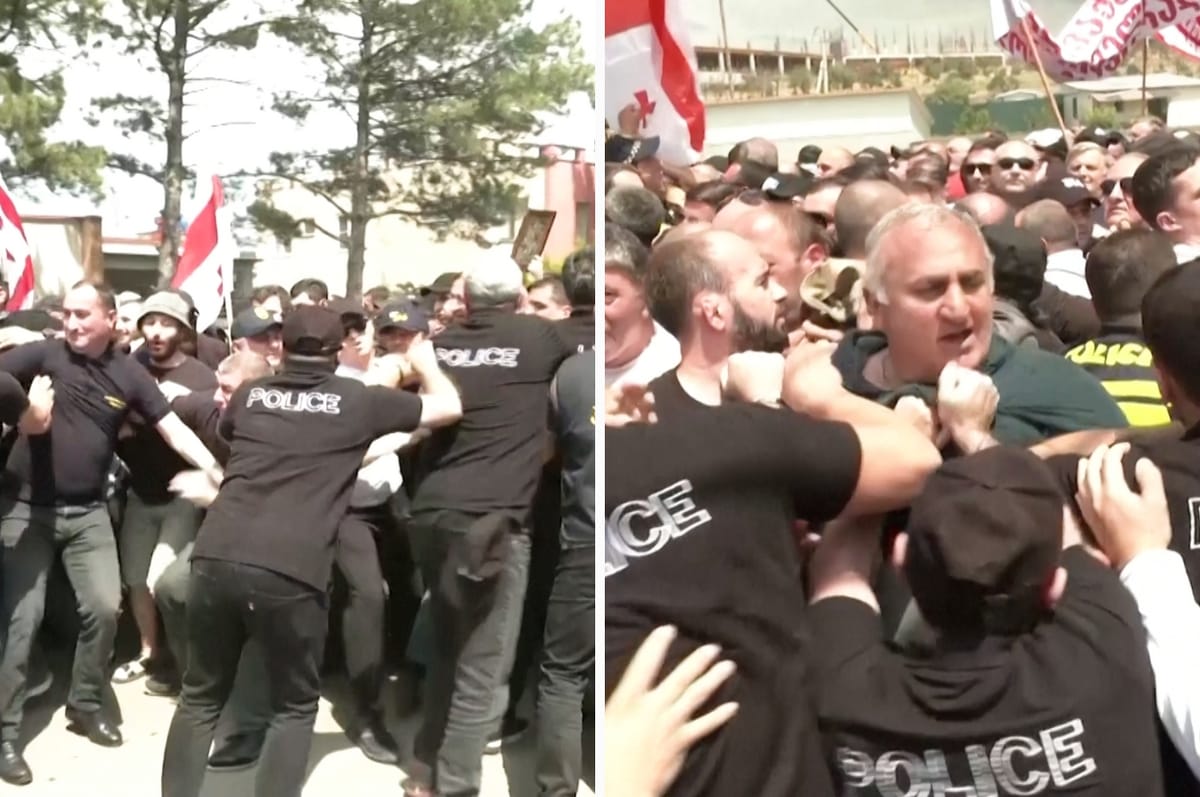A Huge Far-Right, Anti-LGBTQ Mob Attacked The Pride Event In Georgia, Forcing It To Be Canceled
The mob, which included Orthodox Christian clergy, started fires, vandalized the event stage and destroyed rainbow flags and signs.

A far-right, anti-LGBTQ mob consisting of more than 2,000 people attacked a Pride march in Georgia’s capital, Tbilisi, on Saturday July 8, forcing organizers to cancel the event to protect participants’ safety.
The mob, which included Orthodox Christian clergy, started fires, vandalized the event stage and destroyed rainbow flags and signs.
Videos showed the right-wing protesters clashing with police.
The interior ministry said police had tried to stop the mob but was not able to hold all of them back.
“This was an open area, participants of the protest managed to bypass the security and find other ways to enter the event area,” an official said, BBC reported.
It added that authorities had managed to evacuate Pride participants and organizers and that no injuries were reported.
Organizers said they had held the event in private for a second year after far-right groups attacked the parade in 2021, but police still failed to protect attendees.
Mariam Kvaratskhelia, an organizer, told Reuters that the far-right groups had publicly incited violence against LGBTQ activists in the lead-up to the event but police and government had declined to investigate.
Although the country has passed laws that protect LGBTQ people from discrimination and hate crimes, the LGBTQ community still faces frequent discrimination in Georgia, which is socially conservative and predominantly Orthodox Christian.
In 2021, the Pride event was also canceled after violent far-right and anti-LGBTQ protesters attacked the organizers’ office ahead of the march.
Georgia’s president, Salome Zourabichvili, who has frequently criticized the ruling Georgian Dream Party, also criticized the government and police response, saying they had failed to protect the right to freedom of expression.
Georgia has been looking to join the European Union, but rights groups and the EU have criticized the Georgian Dream for moving towards authoritarianism, according to Reuters.
After violent street protests in March, it withdrew a Russian-style bill that would have required non-government organisations receiving more than 20% of their funding from abroad to register as “agents of foreign influence”.
In March, the government withdrew a bill that would require non-governmental agencies that receive 205 of funding from abroad to register as “foreign agents” following mass street protests.
The draft bill was allegedly modeled behind a Russian law passed in 2012, which allowed the Russian government to start a crackdown on free speech.





